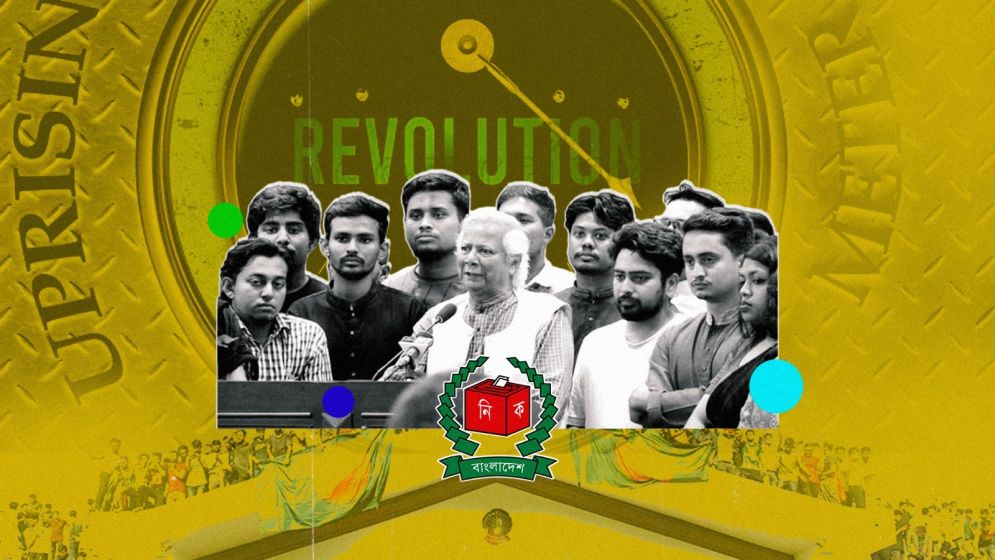Behind the “revolutionary” rhetoric lies a quiet refusal of democracy

By now, we should know better than to mistake theatrics for transformation. But here we are, being told–earnestly and without irony–that what took place in July was a “revolution.”
Apparently, we’ve entered a new era where revolutions no longer require mass mobilization, ideological coherence, or even a modicum of public consensus.
All it takes now is a press secretary with a flair for drama and a government willing to rewrite the dictionary.
Let’s be clear: July was not a revolution. It was an uprising–a month of raw frustration boiling over after years of political suffocation. It was people saying “enough” without knowing what comes next.
There was no unified vision, no grassroots leadership, no credible alternative in waiting. What happened was real, yes–but a revolution? That word implies direction, design, and the promise of a different order.
July offered none of that. It was anger in search of a structure.
And yet, the interim government has seized on the myth. Declaring July a revolution is more than semantic overreach–it’s strategic misrepresentation.
It allows those in charge to wrap themselves in the moral authority of a people’s uprising while doing exactly what the last regime did: consolidate power, bypass accountability, and substitute public consent with PR campaigns.
“We’ll convince the people,” they say–about the port, about policy, about everything–as if governance were a branding exercise, not a social contract.
This government was supposed to be a bridge to democracy. Instead, it has become an end unto itself. It monopolizes power, scoffs at dissent, and insists that it alone knows what’s best for the country.
Funny how revolutions work these days: they don’t require the people–just someone to declare them, and others willing to believe the performance.

The fault in empty rhetorics
When it comes to the one thing that would give this interim government real legitimacy–a national election–suddenly, the rhetoric dries up. The urgency vanishes.
There is no timeline, no roadmap, and certainly no public dialogue. Their silence on elections isn’t some oversight. It’s calculated. And it’s damning.
You can’t posture as a revolutionary force while dodging the very mechanism that defines democratic change. The absence of a clear electoral plan doesn’t just cast doubt–it strips the interim government of the credibility it claims.
Democracy isn’t a mere slogan, nor is it a decorative word you drape over authoritarian impulses. If elections aren’t on the horizon, then neither is legitimacy.
For now, the interim’s only real asset is the borrowed glow of Dr. Muhammad Yunus, a Nobel laureate with global stature whose mere association lends the project a sheen of respectability.
But moral capital doesn’t last long when it’s not backed by democratic process. Dr Yunus may earn standing ovations abroad, but his reputation can’t be a substitute for institutional trust or public consent at home.
And it certainly can’t carry a government that refuses to commit to a vote.
The people didn’t pour into the streets just to replace one form of unaccountable power with another, dressed in reformist language. What they demanded–what they still demand–is a real transition.
Transparent, time-bound, and led by the ballot, not the bullhorn.
We don’t need more revolutionary theater. We need a date. A process. A plan.
Until then, the so-called “revolution” remains exactly what it looks like: unfinished, unaccountable, and dangerously convenient for those who now rule in its name.
—
Shamaruh Mirza is an Australia based medical scientist with a deep passion for justice, dignity, and equality

